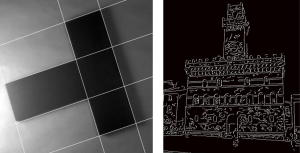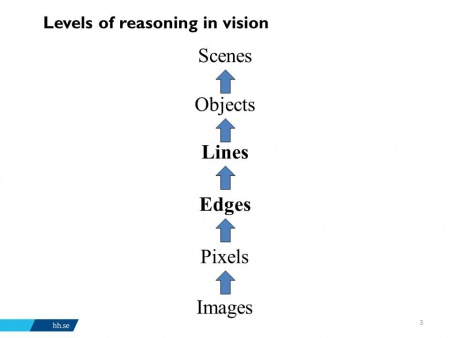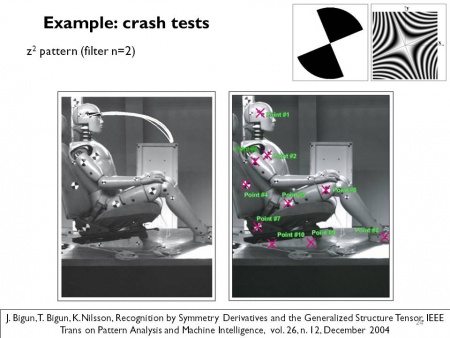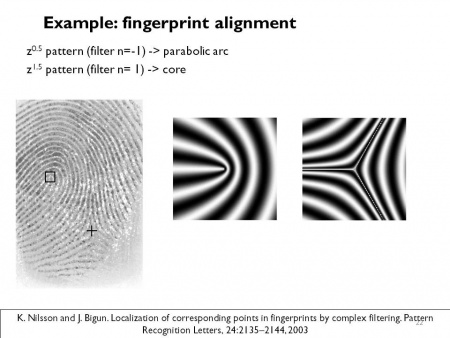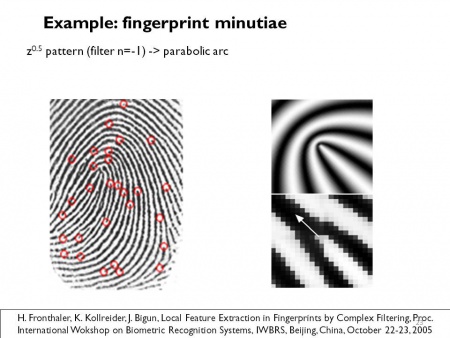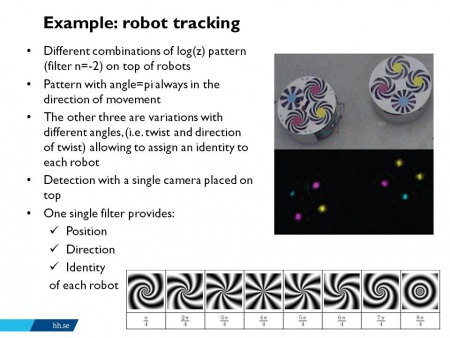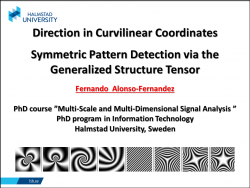Directionality Analysis
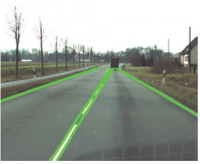
| |
| Directionality Analysis | |
|---|---|
| Contact: Fernando Alonso-Fernandez |
Welcome to this lecture on Directionality Analysis.
(page created in November 2015, last modification November 2016)
This lecture is divided into two parts:
- Part 1 dedicated to the extraction of edges, corners, lines and circles from images
- Part 2 dedicated to the detection of symmetric patterns via the Generalized Structure Tensor
Contents
Part 1: Edges, corners, lines, circles
In part 1, we will describe the most used algorithms for edges, corners, lines and circles extraction from images.
The extraction of edges is the first step of many Computer Vision algorithms. They have also an important semantic meaning for the human visual system, since humans are able to recognize objects and interpret scenes using a small amount of edges or corners. Other segments such as lines or circles are defined thanks to the presence of edges, and further analysis based on these geometrical shapes allows a more complex interpretation of objects or scenes.
Teaching Material
Get slides from Google docs (ppt) here
References and sources
R. Szeliski, “Computer Vision: Algorithms and Applications”, Springer 2010
|
Simon J.D. Prince, “Computer Vision: Models, Learning, and Inference”, Cambridge University Press, 2012
|
R. Klette, “Concise Computer Vision”, Springer, 2014
|
Part 2: Structure tensor
Part 2 is dedicated to the detection of symmetric patterns. The usefulness of this procedure stems from the fact that these patterns appear in many real-world scenarios. Their detection is done using the Generalized Structure Tensor, a mathematical tool that allows simple and direct detection in Cartesian coordinates using a single complex filter built from derivatives of Gaussians.
Teaching Material
Get slides from Google docs (ppt) here
References and sources
“Hard” references (with full mathematical description):
J. Bigun, Vision with Direction, Springer, 2006
|
| J. Bigun, T. Bigun, K.Nilsson, Recognition by Symmetry Derivatives and the Generalized Structure Tensor, IEEE Trans on Pattern Analysis and Machine Intelligence, vol. 26, n. 12, December 2004 |
A more “soft” source with a light, introductory description is:
D. Teferi, Recognition and Evaluation by Video Synthesis Methods and Symmetry Features, PhD Thesis, Chalmers University of Technology, 2009
|
